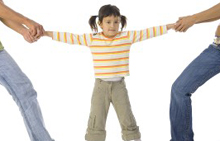 The following posting includes selections from Part 2 of psychologist and social sociologist Laurence Steinberg’s article in Psychology Today (Feb. 2011), that urges parents to talk to their teens about sex before they become sexually active. Part 1 offered some explanations why parents are reluctant to speak about sex.
The following posting includes selections from Part 2 of psychologist and social sociologist Laurence Steinberg’s article in Psychology Today (Feb. 2011), that urges parents to talk to their teens about sex before they become sexually active. Part 1 offered some explanations why parents are reluctant to speak about sex.
* * *
How can parents overcome their own hesitations and their young adolescent’s resistance? Here are some suggestions:
 Psychologist, professor and social sociologist Laurence Steinberg, Ph.D., is an internationally renowned expert on the psychological development of adolescents. Steinberg urges parents to talk to their teens about sex before they become sexually active.
Psychologist, professor and social sociologist Laurence Steinberg, Ph.D., is an internationally renowned expert on the psychological development of adolescents. Steinberg urges parents to talk to their teens about sex before they become sexually active.
 Excerpted from the
Excerpted from the  Commentary on the
Commentary on the  How does one co-parent with someone who won’t let go of the past?
How does one afford one’s children a continued sense of stability and the chance to maintain a good relationship with both parents – when one’s ex is nasty, disrespectful, or uncooperative?
How does one co-parent with someone who won’t let go of the past?
How does one afford one’s children a continued sense of stability and the chance to maintain a good relationship with both parents – when one’s ex is nasty, disrespectful, or uncooperative? Children who are allowed to do whatever they want, whenever they want, and who are given whatever they ask for, have great trouble learning how to cope with frustration. When placed in settings (school!) where they are no longer at the center of anyone’s universe, they have difficult adjusting, and will often act out their frustration, anger and disappointment.
Children who are allowed to do whatever they want, whenever they want, and who are given whatever they ask for, have great trouble learning how to cope with frustration. When placed in settings (school!) where they are no longer at the center of anyone’s universe, they have difficult adjusting, and will often act out their frustration, anger and disappointment.
 It is our natural tendency as parents (and often as partners as well) to pay attention to, and focus more on what is wrong, rather than what is right. As a result, our children and teens feel unappreciated and become less motivated to change or improve their behavior. In addition, they quickly learn that they can get more of our attention through negative behavior or “acting out.”
It is our natural tendency as parents (and often as partners as well) to pay attention to, and focus more on what is wrong, rather than what is right. As a result, our children and teens feel unappreciated and become less motivated to change or improve their behavior. In addition, they quickly learn that they can get more of our attention through negative behavior or “acting out.”